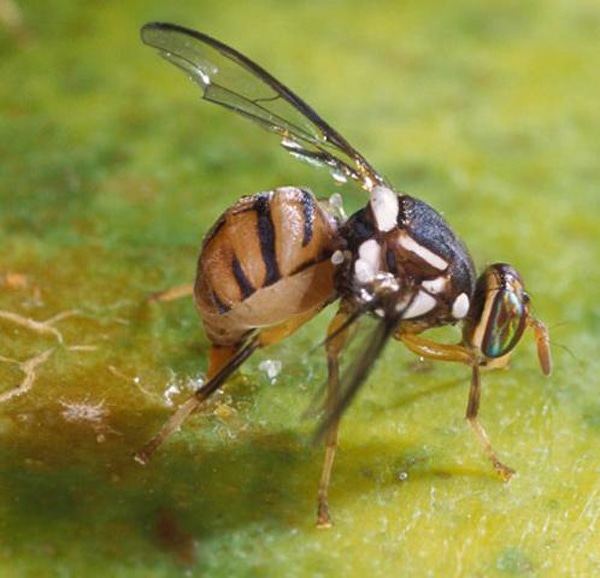August 28, 2015

Florida Department of Agriculture and Consumer Services has positively identified more than 40 Oriental fruit flies in Miami-Dade County. This species is considered one of the most serious of the world’s fruit fly pests due to its potential economic harm.
The initial fly was discovered during routine trapping, and additional flies were discovered during expanded trapping activities. The department, along with the U.S. Department of Agriculture, monitors more than 56,000 fruit fly traps throughout Florida as an early detection network against exotic fruit fly introductions that threaten Florida’s agriculture industry.
“Though disturbing, this find confirms that our early detection system for pests and disease is among the best in the nation,” said Agriculture Commissioner Adam Putnam. “We are working closely with our federal partners to eradicate this destructive pest in order to protect Florida’s $120 billion agriculture industry.”
The fly has been trapped several times in Florida since 1964, and each time it has been successfully eradicated. It attacks more than 230 different fruits, vegetables and nuts, including avocado, fig, grapefruit, guava, loquat, mango, roseapple, papaya, peach, persimmon, Surinam cherry and white sapote. The fruit flies lay their eggs in host fruits and vegetables.
To eradicate this pest, treatment is being conducted in a 1.5-square-mile area around the fly detections. This treatment consists of attracting male flies to bait which consists of an attractant, an insecticide, and a thickening agent. The flies are killed when they feed on the bait. The bait mixture is applied weekly to upper portions of telephone and utility poles. The application will continue for one life cycle of the fly, which is approximately 90 days.
You May Also Like




